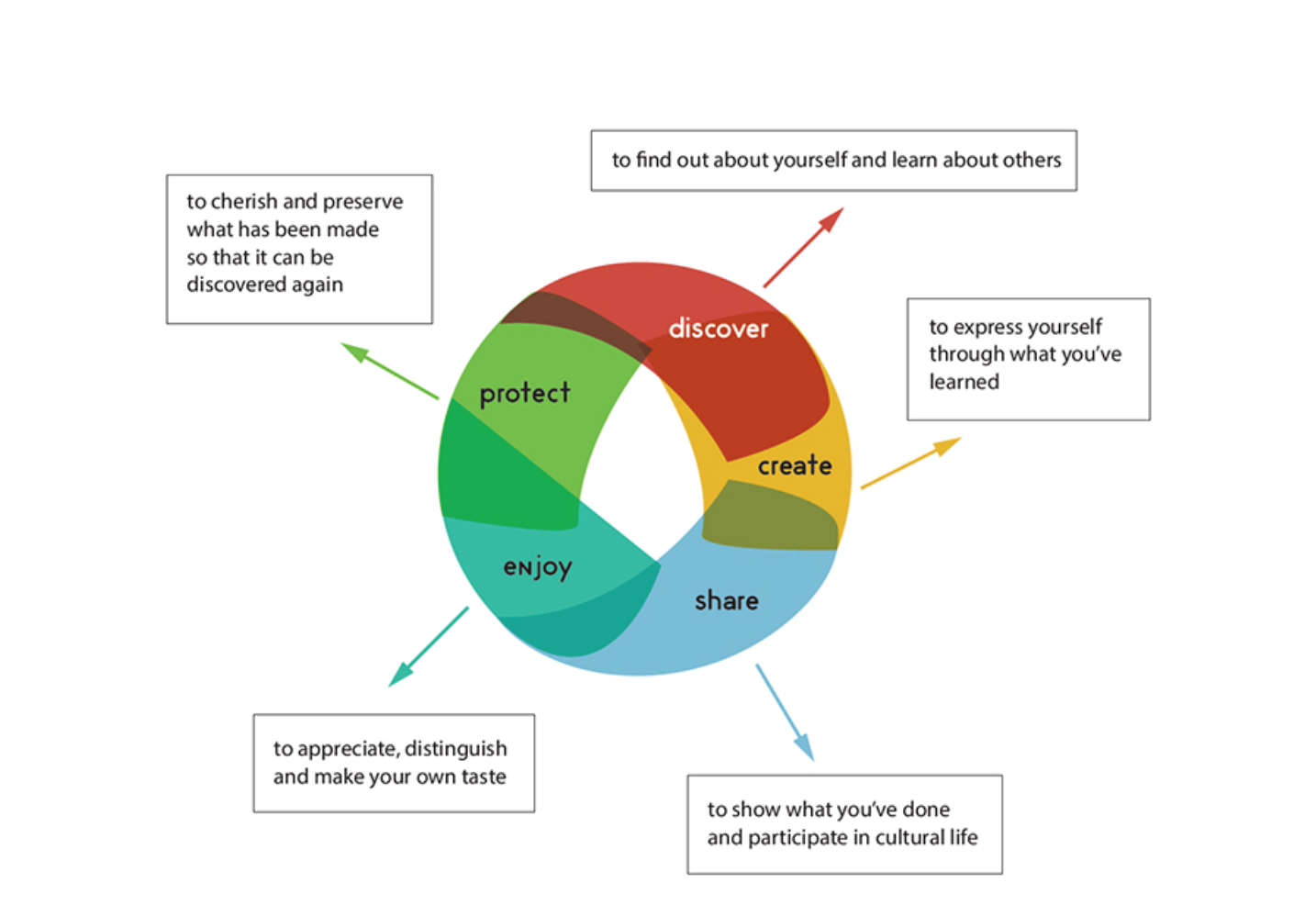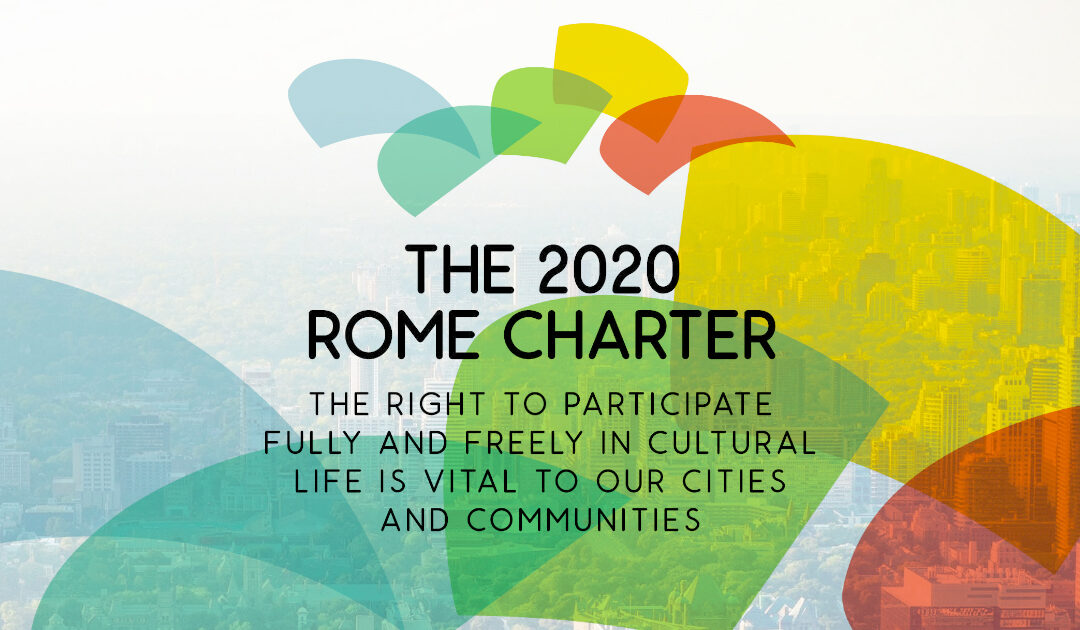During a recent policy forum call of European based foundations organized by Adeste+, I became aware of the 2020 Rome Charter. The principle behind the Charter is “the right to participate fully and freely in cultural life”.
For anyone who is aware of the Sustainable Development Goals (SDGs), put forth by the United Nations and subsequently adopted by world leaders in 2015, it is well known that the role of culture was completely left out. Of course the 17 SDGs are crucially important to creating a better world, but what is a world without culture?
The 2020 Rome Charter seeks to address this omission head on. The effort is being led by Roma Capitale (city of Rome) and the United Cities and Local Governments Committee on Culture. While Covid has shed a brighter light on the issue of access to cultural inclusion, the conversation actually started before that, in 2019.
Why is the role of culture so important? Is it really necessary for governments around the world to recognize it as a human right? The Delia Arts Foundation has also thought about this question. In fact you can see it in our vision statement – “A peaceful world where all musicians have the opportunity to connect and support themselves through the mutual creative language of music.” Of course culture is much bigger than just music, but the underlying principle remains. Through culture we connect, we see our differences as strengths, we create solutions, we express ourselves where words fail. More than anything, culture puts us on an even playing field. No matter our background, no matter our story, no matter our beliefs, we can all contribute in the cultural space. The only thing missing for some is the right to do so due to political circumstances.

Another important challenge to culture is lack of access. The Delia Arts Foundation is all too familiar with this challenge. Many people around the world don’t have access to computers where many cultural events are now taking place and created. Attending live cultural events can also be impossible when one doesn’t live in a big city. Specifically in the music space, musicians have nowhere to rehearse, perform, or record their music. Without an emphasis on creating the cultural activities that breathe life into society, creativity takes a backseat to every day survival.
Culture also provides a unique link to our history. In every culture around the world there are stories, songs, books and art that bond us to our homelands and bring back memories that only art can express. Time and time again over the course of history there have been efforts to remove one’s identity by systematically destroying cultural heritage. While we can’t change history, it points to the power and necessity of culture in healthy societies.
I encourage you to learn more about this important initiative. While Covid continues to bring fear and hardship to every corner of the globe, cultural projects big and small, local and international, continue to unite us and most importantly bring us hope. You can visit the website here, www.2020romecharter.org.
